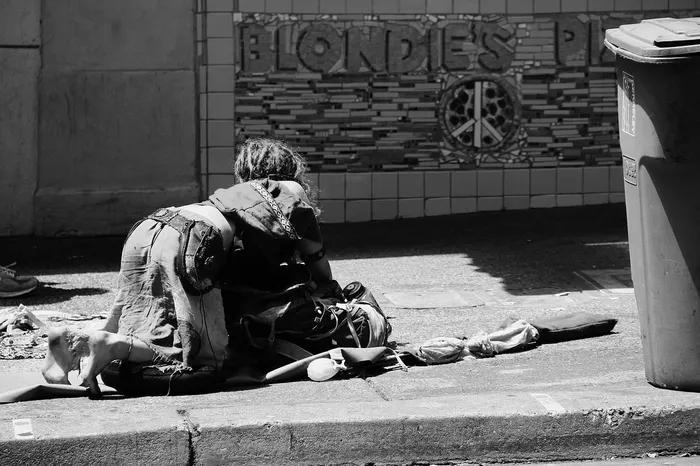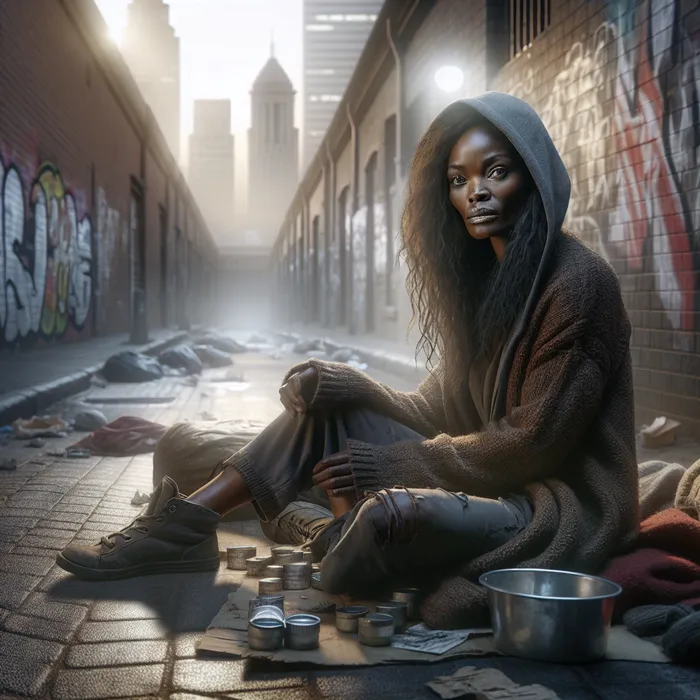Unpacking SA's homeless crisis | The realities of homelessness for women in South Africa

Shedding light on the resilience, struggles, and strength of homeless women too often overlooked
Image: Pixabay
South African women are well versed and fluent in the language of violence as victims of a seemingly unceasing onslaught of gender-based violence and femicide (GBVF).
Moreover, homeless women are more intimately in the crosshairs of violence, shunning and being seen as eyesores in society.
Where there are fewer protections, these resilient women eke out a living in the margins, risking their lives every day. Nosipho Ntshangase, a 27-year-old woman from Inanda in KwaZulu-Natal is among them. She came to the streets when she was just 15 years old and has spent over a decade on the dirty Durban asphalt.
"Being a woman on the street is incredibly unsafe. We don't have privacy or security, especially at night," she told IOL. " A lot of us end up getting sexually assaulted and raped. To get by financially, we also get brought into prostitution."
She described a harrowing ordeal in which she said she escaped a potential serial-killer. She got picked up by a client for sex work, but he did not pay her and instead pulled a gun on her and told her that he was capable of a great deal violence.
"I got out of the car, and he sped off. I found a shopping centre and a security guard approached me. I told him about everything that happened. He told me that I was incredibly lucky to still be alive and that bodies of at least some women had been found where he dropped me off."
While she continues to be a sex worker, the perils have proved to be too much, and she said that she has lessened the dangerous trade.

The Frida Hartley Shelter for Homeless Women and Children claims that 40% of the homeless population in South Africa constitutes of women.
Image: Ai
The Frida Hartley Shelter for Homeless Women and Children claims that 40% of the homeless population in South Africa constitutes of women.
"The reasons vary: job loss, GBV, family dissolutions and lack of affordable housing, to name a few. As a shelter in the front lines, we have noticed a gap in support for children leaving children's homes once they reach the age of 18. Although, now officially adults, this demographic still needs support as their brains are still developing and they lack the knowledge to make sound decisions for their future," said the shelter.
According to a recent report issued by Stats SA, adults, 45%, and youth 44%, constitute the majority of homeless people in the country. "As humans, we are conditioned to believe that the homeless are living on the streets or in shelters as a result of their bad choices however, that is not always the case.
"There are many different reasons why people end up homeless. According to the report, the leading cause for homelessness is unemployment, but in the context of the youth, reasons relating to family such as divorce, arguments with family, domestic violence, neglect, and more were the main reasons," said StatsSA.
Nompumelelo Khumalo is another woman who is in the same predicament. She came to Durban for a job in 2020 and was retrenched due to the Covid pandemic. For shelter at night, she said that she sleeps at Durban Station or a bushy area that is also a car impound lot, neither of these areas guarantee her safety, but she said they are better than being out in the cold.
Khumalo is also addicted to heroin. "What hurts me the most is that I have children...To fuel my addiction, even R1,000 is nothing. This drug is highly addictive."
In 2024, Nosipho Mthembu, who holds a Master of Social Science: Criminology and Forensic Studies from the University of KwaZulu-Natal (UKZN), explored violent behaviours perpetrated against Durban's homeless population.
Mthembu's investigation, prompted by a genuine interest in societal inequities and the plight of the marginalised, revealed the harrowing reality that Durban's homeless suffer as hidden victims of urban violence.
Her research in the city's central business area (CBD) dispels the misconception that homeless people are all criminals. She stated that she had seen firsthand the marginalisation and mistreatment they face.
"Homeless people are more likely to be victims of violent attacks, often by those seeking to exploit their circumstances," she said.
In a twist, her findings indicated that some law enforcement personnel helped to the victimisation by confiscating property and neglecting the suffering of the homeless. Her conversations exposed the harsh realities of a daily struggle to survive in the face of adversity.
IOL News